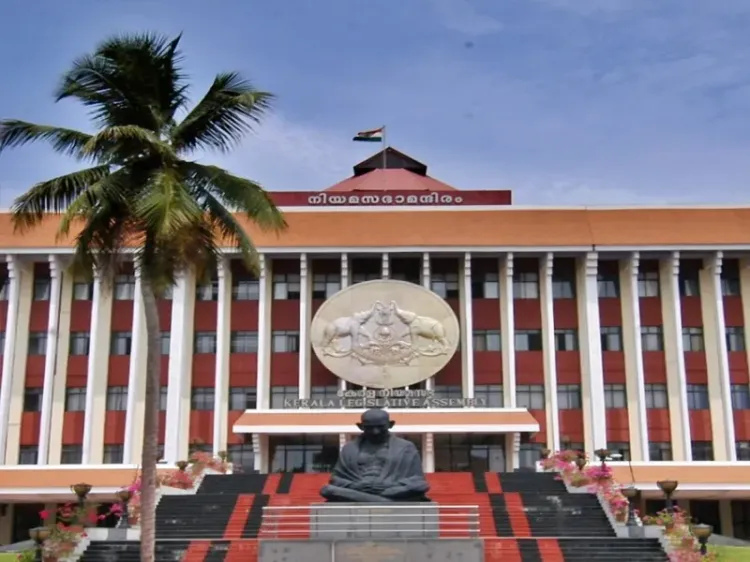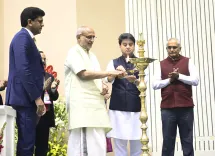Why Did the Kerala Assembly Erupt Over Rahul Gandhi's Security Threat?

Synopsis
Key Takeaways
- The Kerala Assembly faced chaos over a death threat against Rahul Gandhi.
- Speaker A.N. Shamseer denied an emergency motion for discussion.
- The opposition accused the ruling party of silencing critical issues.
- This incident highlights the importance of security in political discourse.
- With elections approaching, the issue is now a major flashpoint.
Thiruvananthapuram, September 30 (NationPress) The Kerala Assembly erupted into turmoil on Tuesday when Speaker A.N. Shamseer denied permission for an emergency motion concerning an alleged death threat against Congress leader Rahul Gandhi.
The notice, introduced by state Congress President Sunny Joseph, aimed to initiate an urgent debate, but the Speaker determined that the matter did not meet the criteria of urgency or significance as per Assembly regulations.
Shamseer’s statement describing the issue as a “trivial matter” incensed the Opposition, who accused the Chair of dismissing a serious security issue.
Leader of the Opposition V.D. Satheesan sharply criticized the Speaker, asserting that trivializing a threat to a national leader was both inappropriate and unbecoming of the Chair. He maintained that the Assembly had every right to address such important public issues.
Despite the uproar, the Speaker remained resolute. He highlighted that the controversy arose from comments made during a television discussion and contended that such remarks could not justify an emergency motion.
“If someone says something in a TV discussion, how can it be discussed here?” he questioned, reiterating that the topic did not require immediate attention.
This response only heightened tensions, with Opposition members flooding the well of the House, brandishing banners and chanting slogans against both the government and the Speaker.
Chants echoed throughout the chamber as members accused the ruling party of attempting to suppress dialogue on a pressing issue, leading to dramatic scenes rarely seen in the Assembly.
In the midst of the chaos, the Speaker hurried through pending business before abruptly adjourning the House for the day.
This swift conclusion highlighted the seriousness of the deadlock, with neither side willing to concede.
The Congress party has made it clear that they will not let this matter slip away, framing it as a crucial test of the government's commitment to security and democratic accountability.
Conversely, the ruling Left insists that the controversy is being exaggerated for political gain and emphasizes the need to adhere to proper procedures.
With local body elections imminent and Assembly polls on the horizon next year, the dispute regarding Rahul Gandhi’s security has rapidly escalated into a critical flashpoint in Kerala.









